Year End 2017
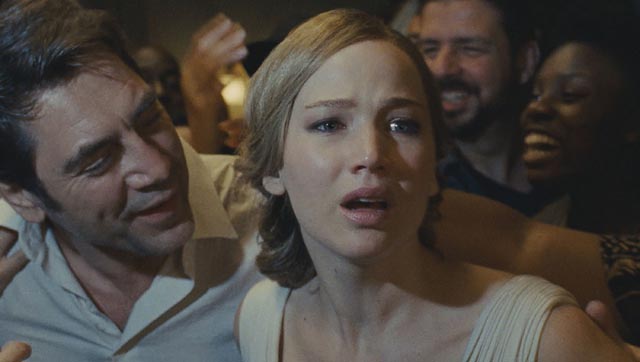
As I do most of my viewing on disk these days, and as most of that viewing is of older movies, compiling a best-of-2017 list presents some problems. If I restricted myself to movies released this past year, I’d have to leave out a lot of my favourites. But the range and variety (my viewing spanned from the 1920s up to the present) makes it hard to single out just ten, or even twenty, titles.
I actually only stepped inside a theatre seven times this year – a fact which kind of saddens me, considering I used to go hundreds of times a year – but as I’ve no doubt said too many times here in the past, I dislike today’s theatre experience and prefer to wait for a home video release. Of those seven, I’d count only one as a total dud (Daniel Espinosa’s Life), while the others ranged from mild disappointment (Denis Villeneuve’s Blade Runner 2049) to excellent entertainment (M. Night Shyamalan’s Split, Paul W.S. Anderson’s Resident Evil: The Final Chapter) to ambitious yet problematic (Darren Aronofsky’s mother!) to exquisite (Agnes Varda and JR’s Visages Villages).
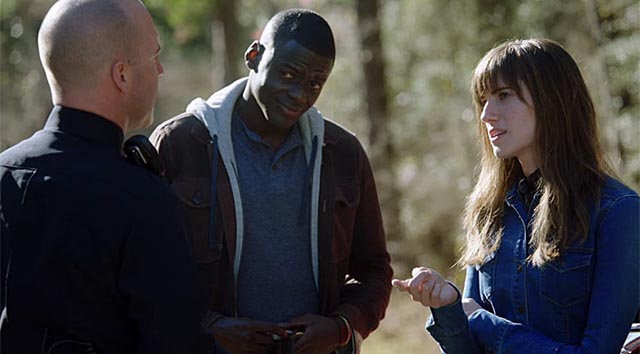
Notable 2017 disk releases include Jordan Peele’s Get Out (highly praised for its approach to issues of race, but – for me at least – compromised by a conflict between its nuanced analysis of those issues and its not entirely satisfying adherence to generic tropes; the disk’s commentary track adds a great deal, with Peele speaking at length about his intentions); Danny Boyle’s T2 Trainspotting (a far-better-than-expected sequel to the groundbreaking original); Trey Edward Shults’ It Comes at Night (an atmospheric exploration of apocalyptic paranoia); David Lowery’s strange and unexpectedly moving A Ghost Story; Matt Reeves’ effective conclusion to the new Planet of the Apes trilogy; and David Lynch’s prodigious return to Twin Peaks.
Three highly regarded movies which did little for me were Patty Jenkins’ Wonder Woman (admittedly, with my dislike of comic book superheroes, I wasn’t really the target audience for this); Ridley Scott’s Alien: Covenant (a pointless retread of elements from the original Alien); and Christopher Nolan’s Dunkirk – I’ve been told by a friend that I really needed to see this in IMAX, but it never seems a good sign to me that a movie really only works if you see it in a particular format. While I appreciated Nolan’s uncharacteristic restraint (the focus on a handful of characters and a running time of just over an hour-and-a-half), I seldom felt engaged by those characters (the young soldier’s efforts to find a way off the beach were offset by some rather standard English stiff-upper-lip stoicism – Kenneth Branagh’s officer and Mark Rylance’s civilian boatman in particular) and the beaches seemed puzzlingly underpopulated much of the time considering that there were some 400,000 men waiting to be rescued (here Nolan’s otherwise admirable insistence on the real rather than the digital lets him down a bit; even though he used thousands of extras, they just don’t look like hundreds of thousands without CG enhancement).
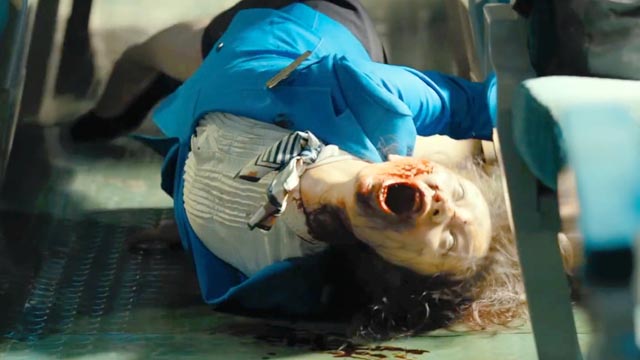
Some of my favourite pre-2017 titles released this year on disk represent a wide range of genres, from giant monsters (Hideaki Anno and Shinji Higuchi’s Shin Godzilla) to zombies (Sang-ho Yeon’s wildly energetic Train to Busan, Colin Minihan’s inventive low-budget It Stains the Sands Red, Pupi Avati’s moody and poetic Zeder) to comic twists on familiar stories (Ken Russell’s Lair of the White Worm, which bends the vampire myth into absurd new shapes, and James Whale’s classic The Old Dark House) to thoughtful science fiction (Joseph Sargent’s Colossus: The Forbin Project in a fine Blu-ray edition at last) to revisionist western (Robert Aldrich’s brutal Vietnam-era Ulzana’s Raid, a dual-format release from Germany, inexplicably still unavailable in North America).
Also released this year on disk was Raoul Peck’s superb 2016 documentary I Am Not Your Negro.
*
Criterion

2017 was a rich year for Criterion Blu-ray releases, from familiar titles (Howard Hawks’ His Girl Friday and an excellent upgrade of Sam Peckinpah’s masterpiece Straw Dogs) to fine recent releases (Andrew Haigh’s 45 Years; Kelly Reichardt’s Certain Women; Jon Nguyen, Rick Barnes and Olivia Neergaard-Holm’s David Lynch The Art Life) and well-known foreign films (Juzo Itami’s Tampopo, Andrei Tarkovsky’s Stalker). There were also extras-laden box sets of Richard Linklater’s Before Trilogy and Guillermo del Toro’s three masterful Spanish fantasy-horrors: Cronos, The Devil’s Backbone and Pan’s Labyrinth. While all of these represent some of the year’s finest releases, the cream of Criterion’s crop were the less familiar titles, like those in the second World Cinema Project collection (Lutfi Akad’s Law of the Border, Apichatpong Weerasethakul’s Mysterious Object at Noon, Lino Brocka’s Insiang, Yermek Shinarbayev’s Revenge, Mario Peixoto’s Limite and Edward Yang’s Taipei Story), Marcel Pagnol’s Marseilles Trilogy, Sacha Guitry’s La Poison, Felipe Cazals Canoa: A Shameful Memory and Michael Curtiz’s The Breaking Point. And, of course, a superb edition of both versions of Orson Welles’ Othello.
*
My British acquisitions have declined this year because of unresolved shipping issues with Amazon UK, so there are fewer than usual titles from the BFI, Eureka and Arrow (though I do occasionally order directly from the latter two companies – the BFI’s shipping rates, unfortunately, are really high).
BFI
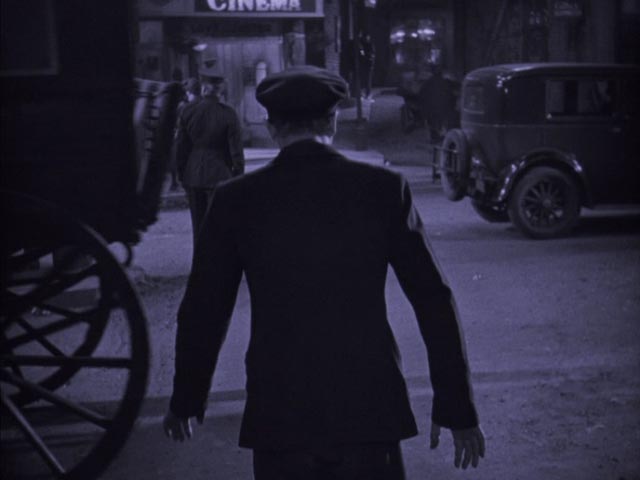
From the minor but interesting (Christian Marnham’s The Orchard End Murder) to the monumental (German Concentration Camps Factual Survey) to the cinematically rich (Arthur Robison’s silent The Informer, Alan Schneider and Samuel Beckett’s Film – paired with Ross Lipman’s lengthy cinematic essay about the production of that short, Notfilm), the BFI continues to create exemplary releases. Not yet viewed are the Flipside release of Maurice Hatton’s faux documentary Long Shot, about his struggle to find financing to make a movie; Alan Clarke’s Rita, Sue and Bob Too (which includes a new feature-length making-of); Abel Gance’s 1938 remake of his epic silent anti-war film J’Accuse; and Two Films by Lino Brocka (including Insiang, which is also in Criterion’s World Cinema Project set, and the earlier Manila in the Claws of Light, plus a hefty selection of supplements).
*
Eureka/Masters of Cinema
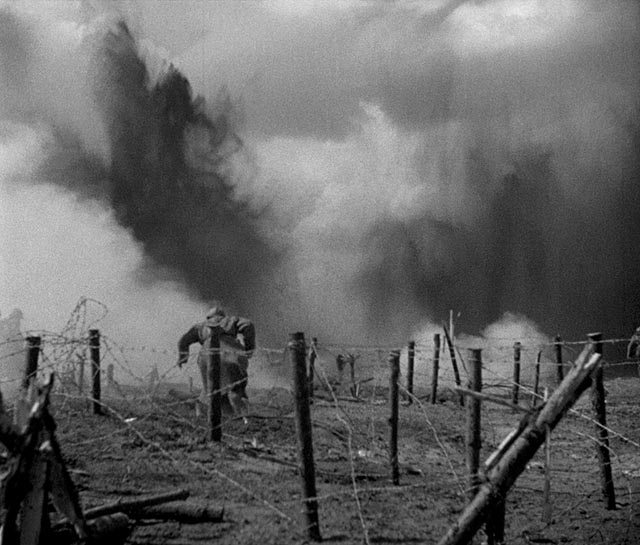
Eureka’s release of Richard Fleischer’s The Vikings offers a gorgeous transfer of one of Hollywood’s finest historical epics, but the highlight of the year for me was the Masters of Cinema double-feature release of G.W. Pabst’s early sound films Westfront 1918 and Kameradschaft (scheduled for separate releases from Criterion this month). Not yet viewed are the Masters of Cinema 90th anniversary edition of Fritz Lang’s Metropolis (the 2001 restoration, the expanded 2010 almost-complete version and Giorgio Moroder’s 1984 pop version – a probably absurd triple- or quadruple-dip on these) and the restoration of Josef von Sternberg’s final feature Anatahan in both its versions, also a Masters of Cinema release.
*
Arrow
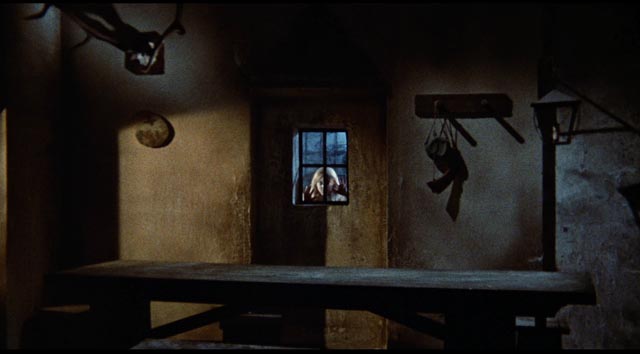
As always, Arrow this past year released a wide range of genre movies in excellent editions, often with substantial supplements. From Georges Franju’s compromised “ghost story” Spotlight on a Murderer to Tonino Valerii’s fine spaghetti western Day of Anger (in two versions) to Dario Argento’s Phenomena (a limited edition box set upgrade from an earlier release of the longest version – which includes three different cuts!) to John Llewellyn Moxey’s atmospheric low-budget City of the Dead (including the shorter Horror Hotel US cut) and several Mario Bava restorations (Caltiki: The Immortal Monster, co-directed with Riccardo Freda, the masterpiece Kill, Baby … Kill!, and – not yet viewed – Erik the Conqueror). But the capper for 2017 was Arrow’s special edition of Don Coscarelli’s Phantasm series, which includes all five features plus a hefty collection of extras (an excellent shelf companion for their 2016 Hellraiser: The Scarlet Box limited edition).
Acquired but not yet viewed: Elio Petri’s Property Is No Longer Theft, Kinji Fukasaku’s New Battles Without Honour and Humanity trilogy, Takashi Miike’s Black Societry Trilogy, Sam Peckinpah’s Bring Me the Head of Alfredo Garcia (which, according to DVD Beaver, has a new hi-def transfer superior to Twilight Time’s; but the main reason I bought it was the massive new supplement – more than ten hours of previously unseen interviews recorded by Paul Joyce for his Sam Peckinpah: Man of Iron documentary), and Marcel Ophuls’ epic documentary The Sorrow and the Pity (the disk includes two substantial extras in addition to the four-and-a-half hour film).
*
Twilight Time
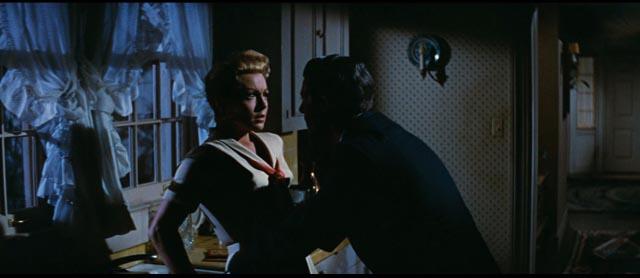
I’ve continued to stockpile Twilight Time titles despite not having enough time to watch them all (I have a current backlog of twelve); many of these are older releases, so I’ll just mention the 2017 titles here. I really enjoyed seeing Roy Ward Baker’s Inferno and Raoul Walsh’s Gun Fury in 3D; finally caught up with Mark Robson’s surprisingly good melodrama Peyton Place; was fascinated by Sam Fuller’s somewhat deranged thriller The Crimson Kimono; and entertained by a bright new edition of John Gilling’s The Pirates of Blood River (strangely, Julie Kirgo in her liner notes declares this a complete anomaly for Hammer, apparently unaware that they’d made a Robin Hood movie, an even better pirate movie called Devil-Ship Pirates, and another about a band of wreckers and smugglers called Captain Clegg [aka Night Creatures] … an unusual slip in her typically well-informed essays). There were two Michael Winner features – The Stone Killer (a fairly routine Charles Bronson vehicle) and Lawman (a tough, underrated western starring Burt Lancaster); a late John Sturges western, Hour of the Gun, and Edge of Eternity, an interesting if minor Don Siegel movie shot around the Grand Canyon.
I never had any desire to see Richard Fleischer’s big-budget debacle Doctor Dolittle until I recently read Mark Harris’ Pictures at a Revolution, but by an odd coincidence Twilight Time released the movie on Blu-ray as I was reading the book. Despite not being a big fan of roadshow musicals, I was fairly engaged. The movie’s misfortune was that it was released at a time of tectonic shifts in the Hollywood studio system; at the time it was viewed as hopelessly old-fashioned, but at this distance it turns out to be a well-crafted piece of “family entertainment”, with nice period design by Mario Chiari, beautifully shot in widescreen by Robert Surtees.
Actually, despite what I said above, I will mention two excellent 2016 releases which I caught up with this year: Ivan Passer’s devastating neo-noir Cutter’s Way and Richard Marquand’s Eye of the Needle, a gloriously old-fashioned blend of woman-centred melodrama and espionage thriller. Of this year’s disks, I have yet to watch Henry King’s period epic Captain From Castille and Yoji Yamada’s sentimental road movie The Yellow Handkerchief.
*
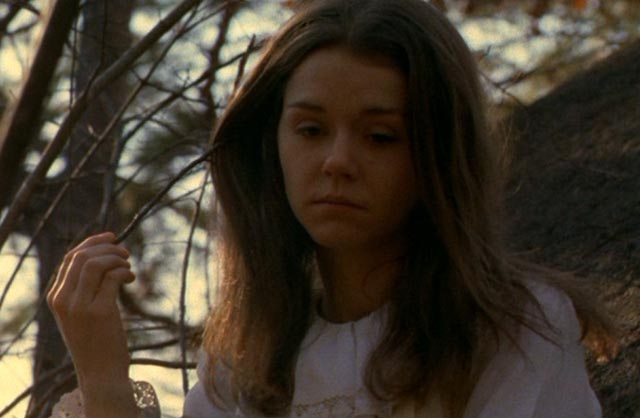
So what in all this constitutes the year’s best? I’m not sure, but I will mention a few of my greatest viewing pleasures of the past year, although they’re all older disks.
Jeff Malmberg’s remarkable 2010 documentary Marwencol, about a man who embarks on a massive project to deal with his own traumatic experience, is a subtle and creative film about the mysterious process of artistic creation.
Frederick R. Friedel’s Axe, Kidnapped Coed and Bloody Brothers, gathered together by Severin on a single disk, are superlative examples of low-budget regional filmmaking.
Andy Milligan’s Blood, Bloodthirsty Butchers, and The Man With 2 Heads; despite his terrible reputation, there’s something about Milligan’s poverty-stricken productions, steeped in bitter misanthropy, which fascinates me.
Ken Russell’s debut feature French Dressing, a visually accomplished effort which subverts cliched English comedy tropes with an unexpected mixture of cynicism and melancholy.
Wolf Gremm’s Kamikaze ’89, which transforms Per Wahloo’s dystopian mystery into an absurdist pop-art satire starring Rainer Werner Fassbinder as an implausible police detective. The Film Movement release includes two documentaries by Gremm, one shot behind-the-scenes on Fassbinder’s final production, Querelle, the other dealing with Gremm’s own fight against terminal cancer.
Bobcat Goldthwait’s Willow Creek, a surprisingly effective late entry into the found-footage horror genre, about a young couple exploring the Bigfoot legend and getting themselves into deep trouble in California backwoods.
Yorgos Lanthimos’ The Lobster, much darker and sadder than its advertising had led me to expect (I had the impression that it would be a wacky comedy, not a depressing existential fable).
George Miller’s “black and chrome” version of Mad Max: Fury Road, with the absence of colour essentially creating a whole new stunningly effective movie.
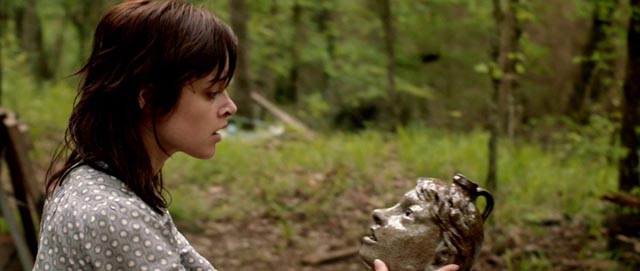
William Beaudine’s Sparrows, a poetically nightmarish silent fable starring Mary Pickford, about orphans being abused and exploited by vicious adults; atmospherically directed by a filmmaker who fell from grace in the sound era, best-known now for endless Bowery Boys adventures and the mid-’60s duo Jesse James Meets Frankenstein’s Daughter and Billy the Kid Versus Dracula. IMDB lists an astounding 372 credits from 1915 to 1976 (the last two perhaps fittingly released years after his death).
Andrew Bujalski’s Computer Chess, which at first glance seems like nothing more than a bold gimmick – a period piece about a competition featuring teams struggling to find artificial intelligence by programming their computers to play chess, all shot faux-documentary style on old Sony tube video cameras. That stylistic choice turns out to be slyly effective, evoking the roots of what has now become an over-familiar technological present, calling into question the dreams and ambitions which have led us to where we are now. A drily funny, subtly philosophical piece of retro-futurism.
And finally, Chad Crawford Kinkle’s Jug Face, an unsung gem of folk horror with echoes of H.P Lovecraft and Manley Wade Wellman; a remote community whose lives are tied to a dark and demanding god is disrupted when a young woman rebels against her fate as a blood sacrifice to their deity.
*
And finally, as always, TCM has put together an elegant and moving tribute to the many movie-related people who died during the past year.
Comments